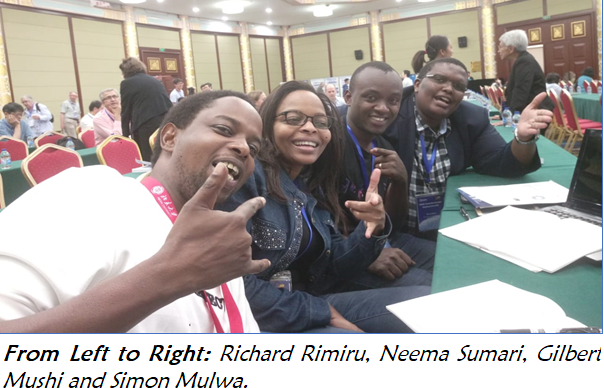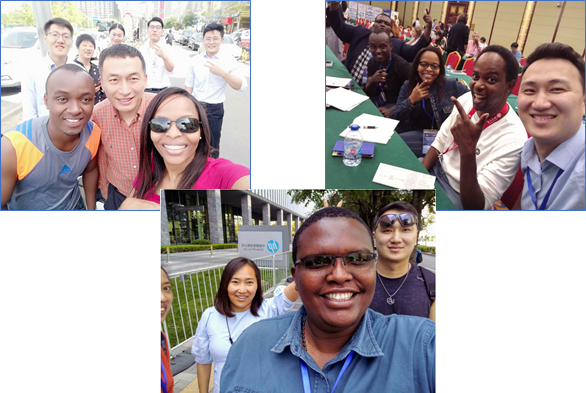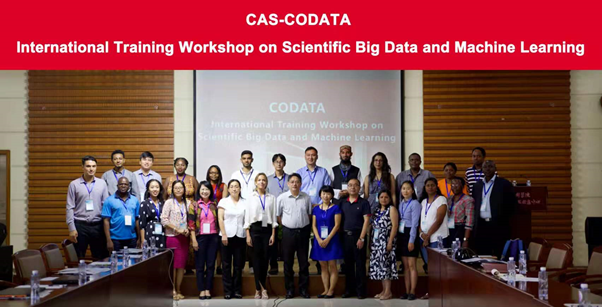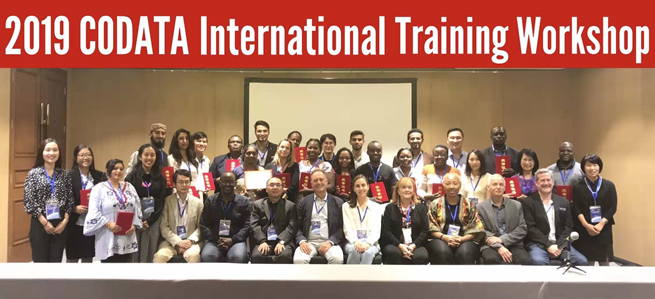Open Data is going to help launch more startups. It’s going to help launch more businesses … It’s going to help more entrepreneurs come up with products and services that we haven’t even imagined yet”. (The former US President Barack Obama, May 9, 2013).
This is our CODATA 2019, Beijing, China Story: Richard Rimiru, Neema Sumari, Simon Mulwa and Gilbert Mushi.
We are “The 4 Musketters from East Africa”, Two Tanzanian from Sokoine University of Agriculture (SUA), Neema Sumari and Gilbert Mushi and Two Kenyans; Richard Rimiru from Jomo Kenyatta University of Agriculture and Technology (JKUAT) and Simon Mulwa from Kenya Agricultral Livestock Research Organization (KALRO), at the time of writing.
The CODATA & CAS International Training Workshop on Scientific Big Data and Machine Learning was a great opportunity for us to work together along with other 21 other students from different countries in the world from different professional and academia backgrounds. The Training Workshop was amazing, we learned, practised and exchanged academic knowledge as well as building on our existing networks and expertise.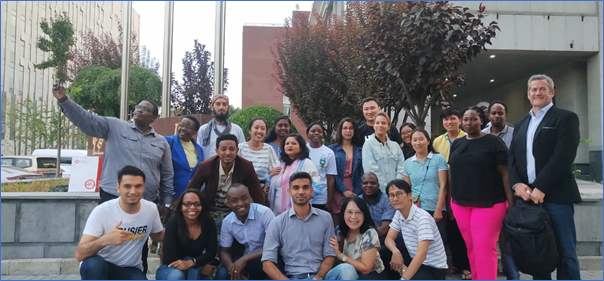
The workshop introduced us to various aspects of Scientific Big Data and Machine Learning with hands on experience: This has stimulated our sureness to start working with these concepts in our environments. We can now start looking into implementing Data science, Visualization, Machine learning and Artificial Neural Networks in our university curriculum & work environs.
The CODATA-CAS workshop in Beijing, China, in September 2019, was the best for us. We wanted to learn and meet new people, ideas and experience different cultures. We are thankfull to CODATA and CAS for their genuine support in attaining these goals. It has been amongest the best experiences in our live’s. We created strong friendships that we hope we will be able to maintain over the next few years if not for lifetime.
As our friend “Batzaya” from Mongolia Would Say, “Wakanda Forever”, Then we say “CODATA Foever”.
The main activites in the training workshop were spread into two weeks of both class room and hands on experience. To mention afew; Data Visualization at Peking University by Professor Xiaoru Yuan was an outstading and novelty which really crowned the training workshop. We look into the future of experiencing some novelty again and again if given the chance.
At the closing session ceremony, Dr. Simon Hodson, Executive Director of CODATA, asked the participants: “so, what have you learned? and what will you do next?” What we have learned was the idea of Open Science and its FAIR Data Principles was a major key to workshop and Conference. We’ve learned different issues on why data can be shared, how it can be analyzed, which data has long term value as well as benefits of storing, protecting, sharing, and publishing data among research scientists. It’s true that most of the researchers would like their data to be publicly stored and accessible by other researchers, however, this is not easy for researchers who do not have clearly defined ways to do this, or do not know, how to make their data accessible to others. Knowledge of data management plans for the hosting research institutes is required to ensure that researchers can define ways to store their datasets in a publicly accessible way after their experiments and publishing are done. Once the research data is stored in a publicly accessible manner, it then needs to be preserved in a format which can be reused by other researchers. In this workshop, the courses that were taught were: Programming-in-R, Cloud Computing, UNIX Shell, ggplot2, Data Visualisation, SQL, Machine Learning, Data Science, Artificial Neural Networks, Particle accelerator, Research Computational Infrastructure, HOC and HTC, Research Data Management. These courses gave us very good skills and knowledge about Data Science which can help us to facilitate the sharing of data – it was great experience. The team understood why open access and data sharing is important in todays data space.
Lastly but not the least, was the wonderful arrangements done by Ms. Wang Ting in assisting us with any logistical challanges occurring during the practical sessions. This was an outstanding style from her. It was one of the most enjoyable and informative moments of our lives.
Thanks to CODATA, and CAS for your support and as well as to all our fellow participants for making it possible and fun.
“We Meet, We Learn, We connect, We Fall in Love”
“The 4 Musketters from East Africa”.

